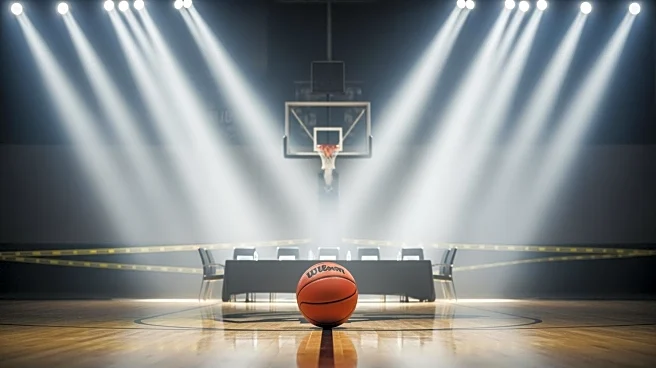What's Happening?
Michigan State basketball coach Tom Izzo has publicly criticized the NCAA's decision to allow London Johnson, a former NBA G League player, to play college basketball at Louisville. Johnson, who spent
three seasons in the G League, will be eligible to play in the 2026-27 NCAA season. Izzo expressed his disapproval, arguing that this decision undermines opportunities for high school seniors and disrupts the collegiate recruitment process. He highlighted concerns about the lack of rules and the impact on younger players who might lose spots to older, more experienced athletes. This decision follows a similar case where another G League player, Thierry Darlan, was granted eligibility to play for Santa Clara.
Why It's Important?
The NCAA's decision to allow former professional players to join college teams could significantly impact the landscape of college basketball. This move may set a precedent for more G League players to transition to college basketball, potentially altering recruitment strategies and team dynamics. High school athletes might face increased competition for college spots, affecting their career trajectories. Coaches and institutions may need to adapt to these changes, balancing the development of young talent with the integration of experienced players. The decision also raises questions about the NCAA's regulatory framework and its ability to maintain a level playing field.
What's Next?
The NCAA may face pressure to clarify its eligibility rules and address concerns raised by coaches like Tom Izzo. Stakeholders, including college coaches, athletic directors, and players, might push for a review of the decision-making process to ensure fairness and transparency. The impact on recruitment and team composition will likely be monitored closely in the coming seasons. Additionally, the NCAA could consider implementing guidelines to balance opportunities for high school recruits and former professional players.










